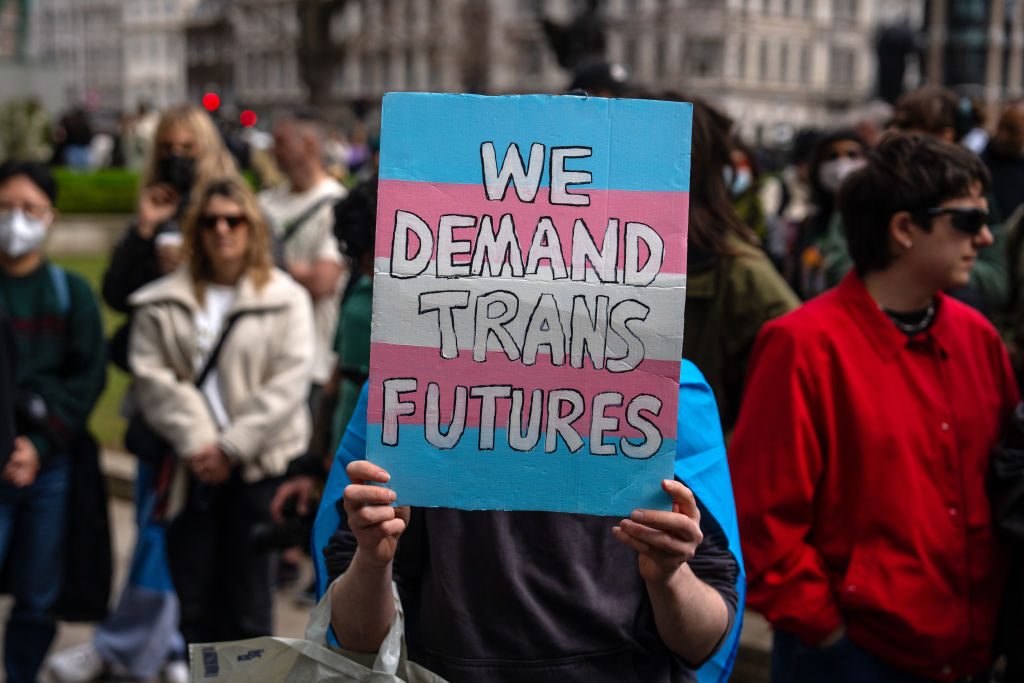As the feminist author Germaine Greer once put it: “Female is real and it’s sex, and femininity is unreal and it’s gender”. It’s a foundational feminist insight, embedded in works such as Mary Wollstonecraft’s A Vindication of the Rights of Woman and Simone de Beauvoir’s The Second Sex. Distinguishing biological difference from reductive stereotypes is essential to the liberation of women. It would be ironic, then, if current attempts to do just that ended up imposing even more regressive standards on womankind.
Alas, there are rumblings that this could be the ultimate outcome of For Women Scotland’s Supreme Court victory regarding the definition of “woman”. According to a Times report on Education Secretary Bridget Phillipson’s as-yet unpublished guidance on applying the law, women are entitled to single-sex spaces and it would be lawful to question someone seeking access to one about their biological sex.
But what if they don’t seem to be telling the truth? When sex is in question, is gender the only standard of judgement on which we can rely?
Only a few years ago this would have seemed a mad question to ask. There was widespread agreement that men ought to keep out of women’s spaces, and that a person’s sex was rarely a mystery to others. “But how do you know I’m not a woman?”, from a man entering the ladies, would have been seen as the frat-boy trolling it so clearly is. If a subset of males declared their intention to keep entering female-only spaces no matter who objected, this would not have been viewed as a complex issue requiring empathy and tolerance on the part of women themselves.
Following a decade of organisations such as Stonewall misrepresenting the law, things have changed. Gone are the days when one might expect social norms and an element of justified shaming to stop men taking liberties. On the contrary, not only is it expected that some people will lie, many will take the side of the liars. The apparent impossibility of policing women’s boundaries has been taken by some as a reason not to have them at all. After all, how can you really know the person you’re excluding is male?
According to the new guidance, “there is no type of official record or document in the UK which provides reliable evidence of sex”. This is because people have been permitted to change their sex marker on passports and driving licences without having a Gender Recognition Certificate. This, one might note, is hardly the fault of gender critical feminists. Even so, they are in line to be blamed for the consequences.
By demanding resources for adult human females in a world where such people have already been undermined in law, feminists will be held responsible for people being judged male or female based on criteria such as “how they look” and “their behaviour”. Aren’t these potentially gendered standards for womanhood precisely the thing they sought to avoid?
If your original objection to gender identity ideology was that it promotes deeply regressive stereotypes about what men and women are, it is somewhat enraging to be told that if butch lesbians find themselves kicked out of the women’s toilets, this will all be on you. The current situation is not the responsibility of those of us who think female humans — regardless of how they choose to present — deserve their own resources, spaces and words.
It would indeed be a tragedy if women found themselves compelled to conform to feminine norms in order to be accepted as biologically female. Yet this is the fault of a movement that aggressively conflated womanhood with femininity while insisting that femaleness is too vague to be defined at all.
The issue is hard to resolve now. This is not because For Women Scotland should have been more careful about what they wished for. It’s down to years of legal, scientific, social and moral obfuscation, and it will take years to put things back in order.
There is no real confusion about “what a woman is”. There is, on the other hand, very little trust in others not to lie about it, and not enough willingness to tell those who plan to do so that they are wrong.
We don’t need more gender stereotyping. Indeed, if we really cared about rejecting gender norms, we could start with the biggest one of all: that women are all very agreeable and can’t have boundaries.











Join the discussion
Join like minded readers that support our journalism by becoming a paid subscriber
To join the discussion in the comments, become a paid subscriber.
Join like minded readers that support our journalism, read unlimited articles and enjoy other subscriber-only benefits.
Subscribe